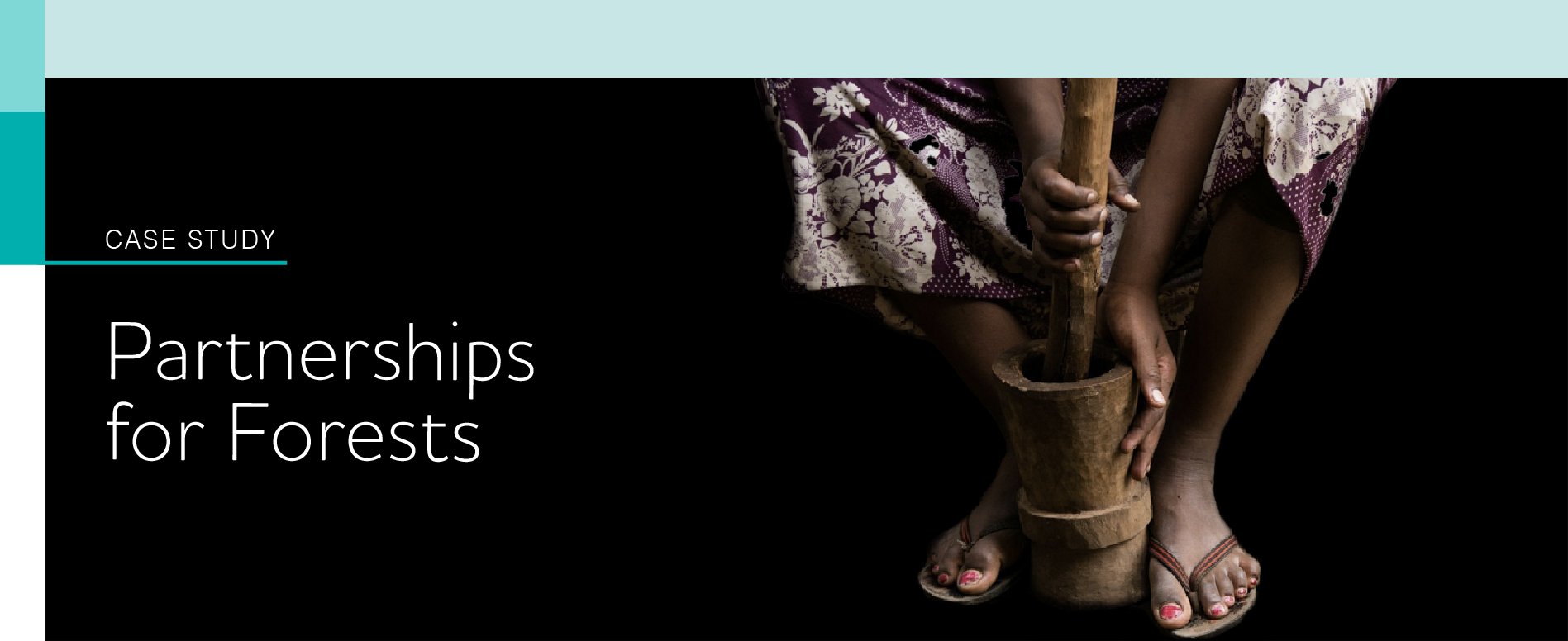Case Studies

£557,857,004
Investment Catalysed
3,343,435.00
Hectares Under Management
13,151,700MT
of CO2 Emissions Captured
260,702
People Reached
118,647
Individuals Reporting Increased Incomes
160
Organisations Supported
Working across Africa, Southeast Asia, and Latin America, the UK-funded Partnerships for Forests (P4F) project has been catalysing sustainable land use since 2016. Connecting private sector companies, the public sector and people— especially the communities that depend on forests for their livelihoods—P4F creates market-ready ‘Forest Partnerships.’
Through a combination of grants and technical assistance, P4F helps partners get to market—supporting them on their journey from an idea or concept through to full proposal, business plan, pilot, and to commercial scale-up.
Since its inception, P4F has restored or protected over 8.6 million hectares of forests around the world, and, in 2023, the team reached a major milestone: £1 billion of private investment mobilised and channelled into forests and sustainable land use.
£1 billion is a difficult number to conceptualise, but it’s the cumulative impact of a huge range of individual projects implemented by P4F in tropical forests around the world.
That impact is felt in Ethiopia, where the highlands are known for its forest coffee – coffee that grows wild in the forest. With limited processing, it was widely consumed but had a reputation for being of poor quality and lacked traceability. Consequently, forest coffee was sold as commercial-grade coffee at discount rates below what it could obtain in the export market, and in lower quantities than would be feasible for export.
However, this supposedly low-grade coffee held the potential for high regard and international demand. Ethiopia has abundant genetic Arabica diversity growing wild in its forests, suitable land, fertile soil, optimum temperature, and other conditions to produce high-quality specialty coffee. The specific taste of forest coffee – slightly citrusy and bittersweet – was highly regarded by coffee tasting experts.
By helping farmers earn higher premiums than they previously earned from coffee, there is a greater incentive for local communities to protect their forests and keep them standing – rather than cutting into forests for agricultural expansion or firewood.
For the Ethiopian Wild Coffee project, P4F focused on rebranding Ethiopia’s forest coffee and positioning it as a premium coffee brand suited for export. But before the coffee could be exported, the supply chain needed to be strengthened.
German development agency GIZ managed the supply side of the project, which created a strong supply chain for the forest coffee, improving its collection, processing, supply, and traceability. Partner TechnoServe managed the demand side, by promoting the creation of Ethiopia’s premium forest and semi-forest coffee brands and encouraging global coffee roasters to create new lines and branding for forest coffee.
With P4F’s support, the Ethiopia Wild Coffee project successfully developed forest coffee specialty brands and introduced it into the export market, while bringing nearly 150,000 hectares of land under sustainable management. The price that smallholders received for their coffee beans grew from an average of £2.60 per kilogram to £9 per kilogram, with more than 18,000 farmers receiving training. Across the project’s eight-year life span, 2,861 metric tonnes of forest coffee, worth about £18 million, was exported.
Ethiopia Wild Coffee is just one highlight from the thriving sustainable coffee sector in East Africa. Through countless stories like this one, P4F has proved that public funds can leverage private finance into nature, with rippling impacts for individuals, communities, and our planet.
